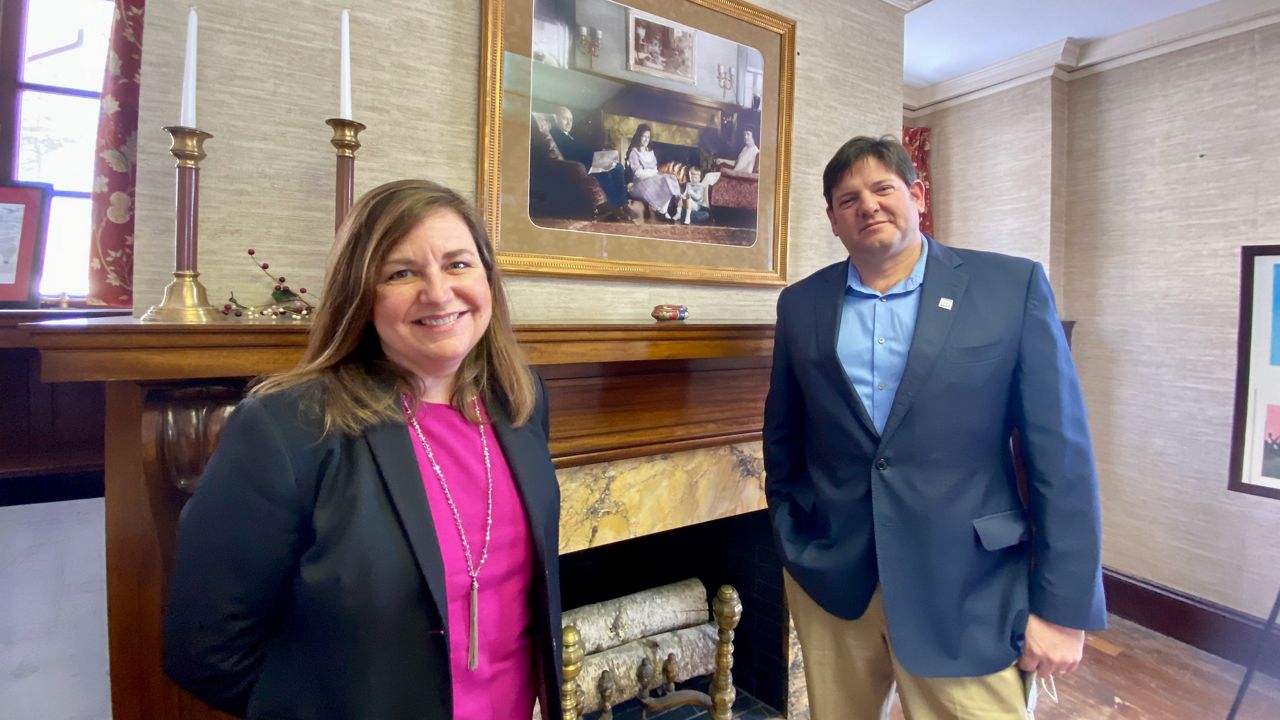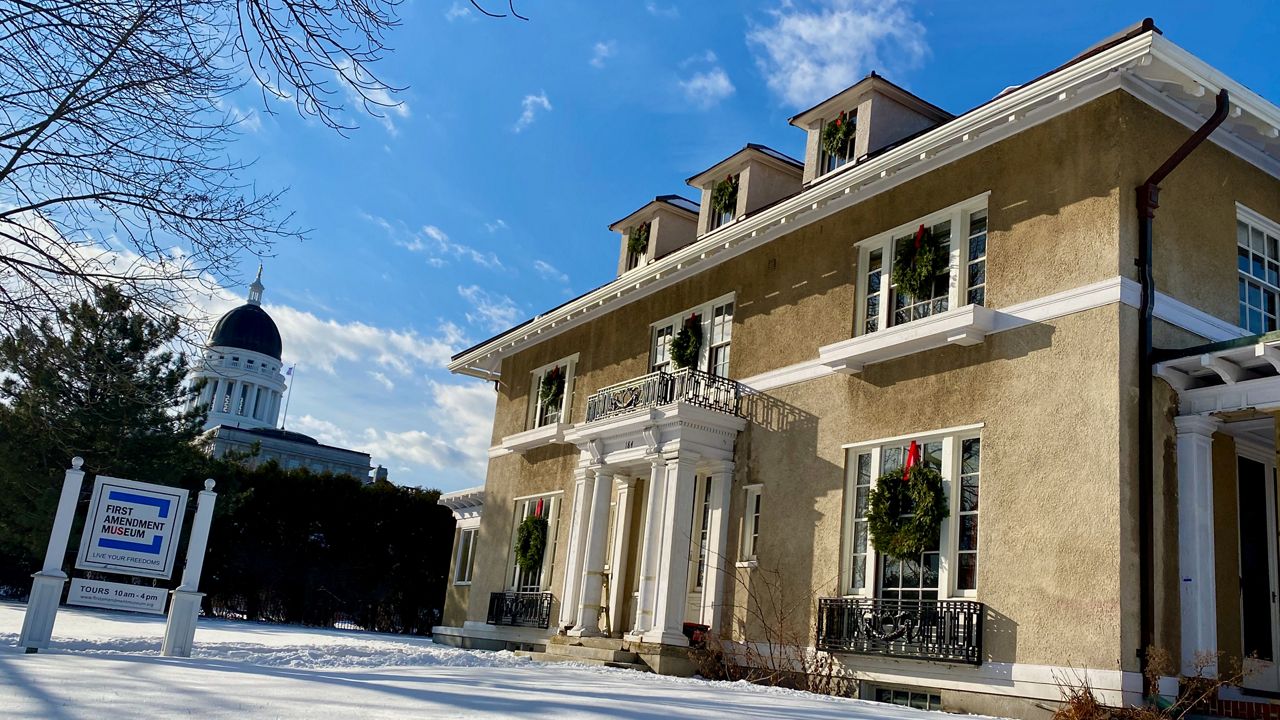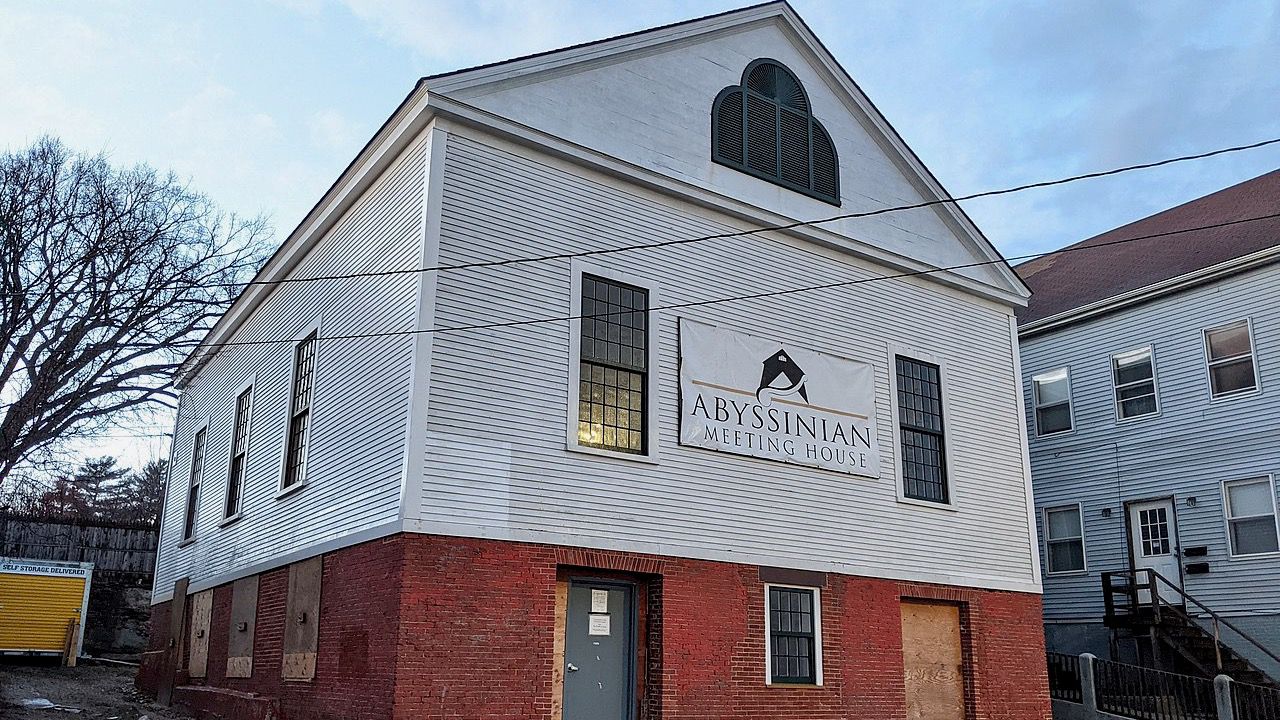The First Amendment Museum in Augusta will soon launch the quiet phase of its $14 million fundraising effort, an ambitious expansion plan to educate and inspire visitors interested in knowing more about their rights and responsibilities under the Constitution.
“The whole idea is this museum will inspire people to live First Amendment freedoms,” said CEO Christian Cotz, during a recent tour.
Those freedoms – religion, speech, press, assembly and petition – are an important part of maintaining a healthy democracy, he said, describing the museum as “fiercely nonpartisan.”
Despite the pandemic, the museum hosted 300 students this year, including groups from Germany and Chicago. They held virtual programs too, drawing 10,000 viewers to lectures, book launches and debates among attorneys over the merits of pending legislation.

When it reopens in early January following a holiday closure, visitors will be able to see displays on banned books, controversial cartoons and learn more about historical and current day First Amendment fighters. On a fireplace mantle on the first floor, an image of Founding Father James Madison – often called the father of the Constitution – stands near one of former NFL player Colin Kaepernick, who kneeled before games to protest police brutality.
Upstairs, visitors can see the original “Bong hits 4 Jesus” banner that led to the Supreme Court case Morse v. Frederick, which helped define the limits of high school students’ free speech, according to the museum.
In future years, the museum plans to build a 5,000-sq.-ft. addition and incorporate the garage as a visitor center. The grounds will be expanded too, offering space for outdoor events, Chief Development Officer Jamie O’Brien said.
Built in 1911 by William Howard Gannett, the home on State Street was a wedding gift for Guy and Anne Gannett, according to the museum website. At the time, it was the only “Mediterranean Revival” home in Augusta and included modern conveniences such as electric light fixtures, a central vacuum system, and the first automobile garage in the city.
“It was really an architectural gem when it was created,” Cotz said.
In 1921, Guy Gannett purchased two newspapers in Portland to create the Portland Press Herald, and later purchased additional publications including the Kennebec Journal and Morning Sentinel. He also founded radio and television stations. His wife Anne Macomber Gannett was active in the Maine Republican Party and was president of the Augusta Women’s Suffrage Association, according to the museum.
The Gannetts didn’t live in the home long, selling it in 1927 to move to Cape Elizabeth so Guy Gannett could be closer to the Press Herald. The state purchased it in the 1970s and it was used as the State Planning Office until 2010.
The state deferred maintenance on the home for years and signs of its ownership – including large fluorescent ceiling lights – remain in place. In 2015, sisters Genie Gannett and Terry Hopkins purchased their grandparents’ home, eventually deciding that a First Amendment Museum would not only pay tribute to their family but to American democracy.

“Genie and Terry are so committed to this project and seeing it through,” Cotz said. “They deserve so much credit to make this happen.”
Cotz started at the museum in January 2020, having previously worked at Montpelier, James Madison’s home in Virginia. While there, he worked as project director for an exhibition called “The Mere Distinction of Colour,” which won six national museum awards.
Shortly after he started with the First Amendment Museum, the pandemic hit Maine. Cotz hoped it would be short lived, but later realized the museum would need to offer online events, something that has greatly expanded its reach.
So far, the museum has received a $250,000 Institute of Museum and Library Sciences grant and a commitment of $150,000 over three years from Kennebec Savings Bank. Work done to date – including a new roof, restored windows, gutters and stucco repairs – has topped $3 million, O’Brien said.
Eventually, the museum wants to be “a pilgrimage site” to draw some of the 37 million people who visit Maine on vacation each year. Instead of stopping in Augusta for gas and getting back on the highway, they hope to be a destination.
And once the Maine State Museum reopens in late 2023 or early 2024 – it is undergoing a multi-million renovation of its own – there’s the potential for schoolchildren and adults to spend a fun and educational day in the state capital.
“We’re just getting going,” O’Brien said.









